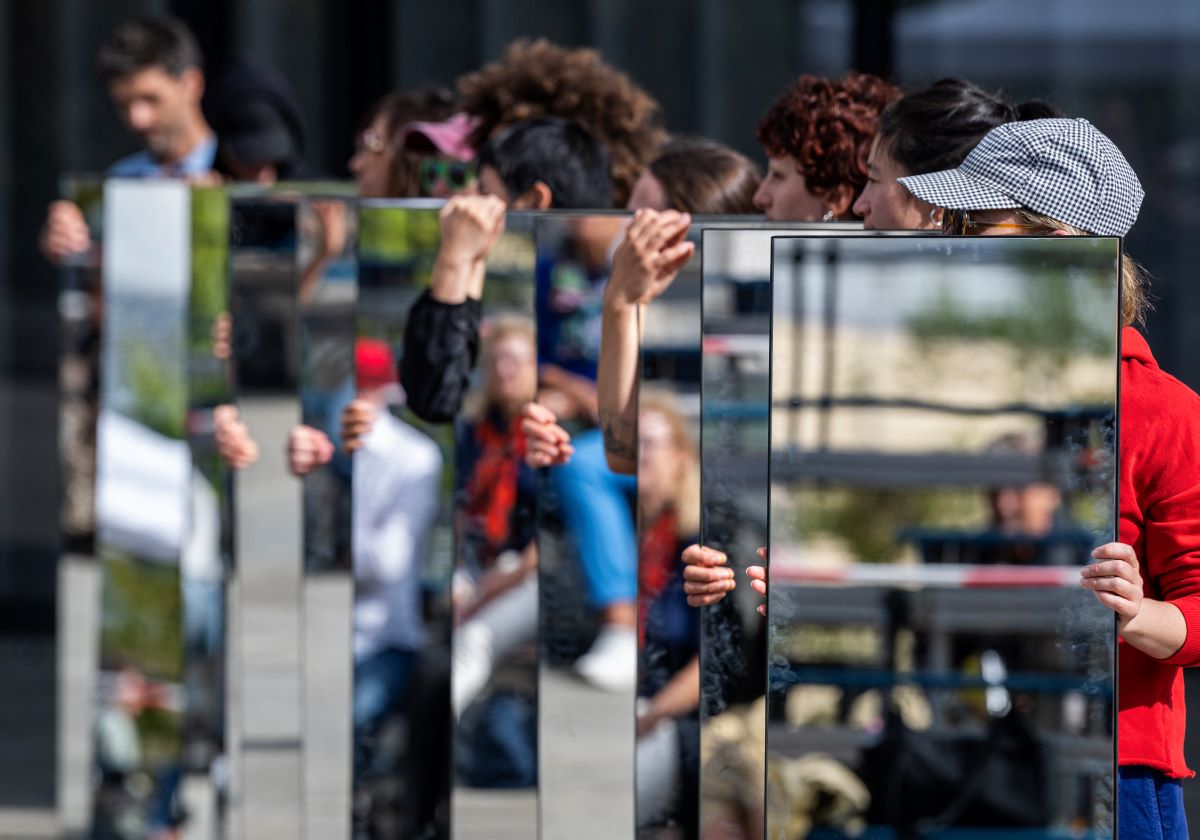Monday's top story: Conservatives dominate local elections in North Rhine-Westphalia
According to preliminary results, the conservative Christian Democrat Union (CDU) emerged as the strongest party in the North Rhine-Westphalia (NRW) municipal elections on Sunday with 33.3 percent of the state-wide vote.
Nearly 13.7 million people were eligible to vote, deciding outcomes in 31 districts and 396 towns and cities, with about 20,000 local offices and mandates up for grabs.
The centre-left Social Democrats (SPD) took 22.1 percent. Both major parties, which together form Germany's federal government, posted their weakest results since NRW’s foundation.
The far-right Alternative for Germany (AfD) rose to third place overall with 14.5 percent, gaining traction in both urban and rural areas, while the Greens dropped to 13.5 percent.
The Left Party (Die Linke) improved its position to 5.6 percent, and the Free Democratic Party (FDP) fell to 3.7 percent.
Many mayoral and district administrator contests in large cities – including Bonn, Mönchengladbach, Dortmund, Duisburg, and Hagen – will now proceed to runoff elections as no candidate was able to secure an absolute majority.
READ ALSO: Germany plans VAT cut in restaurants and hike in commuter allowance
Voter turnout reached 56.8 percent – a marked rise compared to 51.9 percent in NRW’s last municipal elections five years ago.
Polish president to visit Berlin
Polish President Karol Nawrocki is due in Berlin for talks on Tuesday, with his past criticism of Germany looming over Warsaw's diplomatic drive to bolster allied support after a Russian drone incursion.
Poland is seeking greater military and political backing after its army, together with its NATO allies, scrambled jets to down Russian drones violating its airspace early on Wednesday.
While Russia denied targeting its eastern European neighbour, Polish Prime Minister Donald Tusk warned his country was closer to "open conflict" than at any point since World War II in the wake of the intrusion.
Nawrocki -- a right-wing nationalist who has often locked horns with Tusk -- is to meet German Chancellor Friedrich Merz and President Frank-Walter Steinmeier on Tuesday before travelling to Paris.
The political novice was elected in June and is a former director of the Institute of National Remembrance, which is responsible for prosecuting historical Nazi and Communist crimes.
A fervent admirer of US President Donald Trump, Nawrocki has repeatedly accused Germany of treating Poland as a "minor partner" and of sending undocumented asylum seekers back to Poland.
READ ALSO: Six new daily trains between Germany and Poland to launch this winter
On the election campaign trail, he vowed to demand reparations from Germany over the treatment of Poles during the Second World War -- a position that sets him at odds with Tusk's pro-European government.
Majority of young Germans borrowing to meet daily needs
More than half of Germans under 50 have borrowed money for daily needs in the past two years, with 44 percent turning to family and 40 percent opting for bank loans, according to a Civey survey commissioned by Barclays.

The most common reasons for borrowing are food purchases (26.6 percent) and clothing (21.4 percent), closely followed by car expenses and discretionary spending.
READ ALSO: How you can save on your gas bill following a price drop in Germany
Young adults are most affected: 60.4 percent in the 18 – 29 bracket borrowed money, and over a third did so for routine daily needs. For those aged 30 – 39, nearly a third also named essentials as the main reason for borrowing.
Most loans are relatively small. Nearly half of respondents borrowed less than €1,000, and among the youngest group almost a third borrowed up to €200. One-quarter needed sums between €1,001 and €5,000.
Looking ahead, nearly a third (31.9 percent) expect to need loans over the next two years. The research, based on responses from over 10,000 adults, highlights mounting financial pressure from inflation, making everyday life increasingly reliant on borrowed funds.
Schroeder seals Euro basketball title for world champions Germany
NBA star Dennis Schroeder came good when it mattered most as Germany edged out Turkey 88 – 83 to win the EuroBasket title, two years after lifting the World Cup.
Despite a quiet first half, 31-year-old Shroeder came into his own later in the game.
With his team trailing by a point as time ticked down, Schroeder scored six unanswered points to give Germany victory in Riga, under the watchful eyes of German President Frank-Walter Steinmeier.
An emotional Schroeder, who finished the match with 16 points, slumped to the floor as his teammates mobbed him at the end of the high-quality match.
In a clash between two teams that reached the final unbeaten, Turkey came close to lifting their first major international trophy.
But despite the excellent Alperen Sengun's 28 points and three rebounds, Turkey could not quite take the final step.
With Turkey trailing 86-83 and seconds remaining, Sengun failed with a match-tying three-pointer and Schroeder had the last word.
After storming into a 13-2 lead, Turkey had seemed ready to back up their impressive semi-final success over Giannis Antetokounmpo's Greece with a first title.
But led by Isaac Bongo, with 20 points and five rebounds, Germany hit back to ensure the match remained razor tight right the way through to the thrilling finale.
Greens enter debate on inheritance tax
The Greens’ parliamentary group leader, Katharina Dröge, proposed a reform Saturday of Germany’s inheritance tax aimed at addressing wealth inequality while supporting family businesses.
The plan targets closing loopholes that currently allow large inheritances, including company assets and agricultural holdings, to be passed on mostly tax-free. Dröge emphasized that inheritances worth millions can avoid taxation under current rules, contributing to unfair disparities.
To prevent family-owned companies from financial hardship due to tax payments, the reform suggests extending deferment periods for paying the tax over several years.
The proposal also includes measures to promote wealth-building among lower-income groups to reduce the wealth gap. Dröge called for cooperation among political parties to implement fairer inheritance tax policies quickly.
READ ALSO: Are there tax benefits to having a mortgage in Germany?
The new proposal follows ongoing debates about fiscal justice amid state budget shortfalls. Bavarian Minister-President Markus Söder recently suggested allowing federal states to set their own inheritance tax rates, a proposal Chancellor Friedrich Merz rejected.
Berlin Art Week explores migration and fascist ideologies
Berlin Art Week 2025 showcased the latest in contemporary art between September 10th and 14th, underscoring Berlin's role as a major international art hub.

Besides the art fair, the event spanned numerous exhibitions, discussions, and performances across Berlin’s galleries and institutions. A significant number of exhibitions engaged with contemporary issues such as migration, fascism, and cultural identity, including a major group show at Haus der Kulturen der Welt addressing fascist ideologies.
Other highlights included Carolyn Lazard’s critical exploration of the pharmaceutical industry and the opioid crisis, along with Pieter Schoolwerth’s reflections on memory and image reproduction.
With reporting by AFP.

Comments (1)